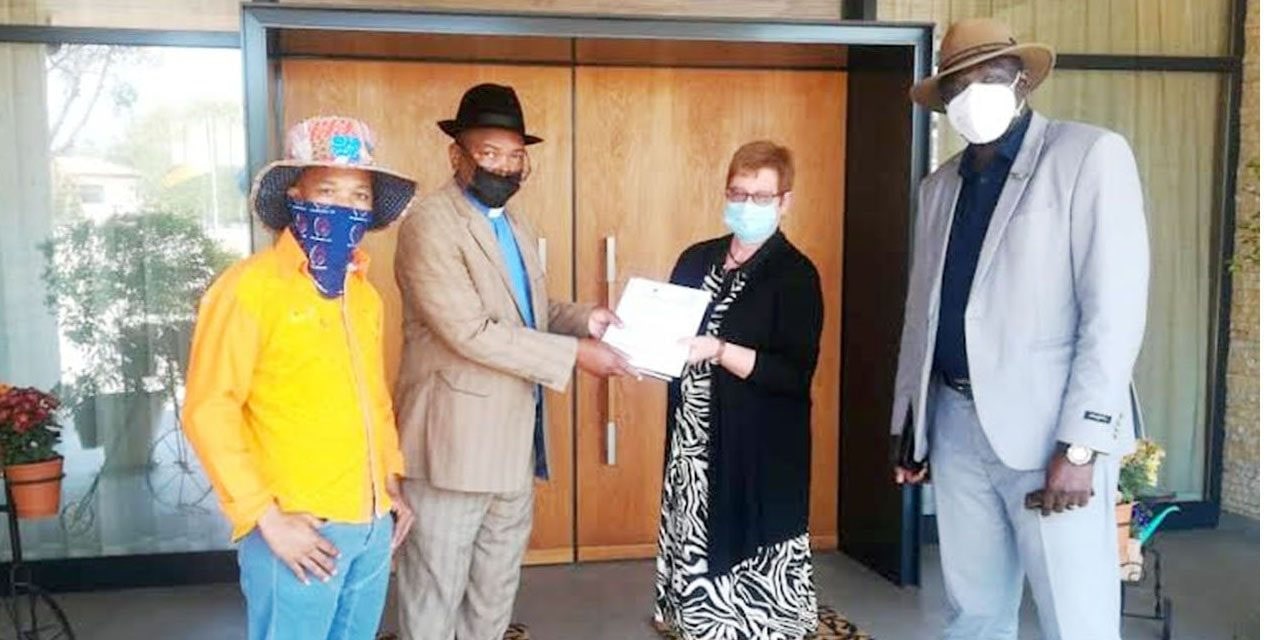Kandjemuni Kamuiiri
The Botswana Society for Nama, Ovaherero and Ovambanderu (B.O.S.N.O.O) Legal & Publicity Secretary, Kazeire Raurau Hangara, distances themselves from the Joint Declaration as stated by a member of the Namibian National Assembly, Dr Itah Kandjii Murangi, herself an offshoot of the Genocide exiles in Botswana. Her submissions are unfortunate and respectfully not true.
“I am also happy to note here that representatives from Ovaherero/ Ovambanderu and Nama in Botswana, have been engaged and will be engaged as and when necessary at the local Traditional Chiefs, Chiefs Representatives, Negotiators and the Technical Committee Levels, the later chaired by H.E. the Vice President, Dr Nangolo Mbumba,” Dr Kandjii-Murangi said on Tuesday during her contribution to the debate in the National Assembly on the Joint Declaration .
Hangara notes with concern such a representation by Dr Kandjii-Murangi. “It is here noted that as Batswana of Namibian descent, and equal descendants of the survivors of the Genocide to those in Namibia, we have always believed and been convinced of an inclusive and corporate approach to the matter by all affected communities as evidenced by several attempts such as the OMAUANENO DECLARATION of 2017 and other collaborative initiatives, which sought to see parallel concerted and coordinated, as well as joint reparation campaigns by regional, continental and international solidarity groups,” reads the statement by Hangara.
Adding that they cannot dictate to the Namibian government how it may approach the issue of Genocide with her German counterpart within her borders, but can only advise their fellow descendants in Namibia, that the best they can do is to advise their government, which has friendly relations with the Botswana government, as well as that of South Africa, which also has Genocide victims of Namibian descent, that “it is not too late to renege on the agreement and engage them on the matter denovo”.
Hangara says it was and it is still expected of the Namibian government to have engaged and still engage its sister governments of Botswana and South Africa engage also as indirect interested parties by virtue of their citizens being victims in this regard. As opposed to, given the trans-nationality of the matter, keeping it as purely a bilateral issue between it and its German counterpart.
Hangara mentions that this would ensure and fully demonstrate the much desired inclusivity as well as placing the respective parent governments not as owners of the process but as facilitatory and observatory participants.
Hangara says despite acknowledging the need and eligibility for them to be part of the negotiation table with the Germans, the Namibian government went ahead unconcerned and somewhat stealthily to craft and conclude the talks alone with the Germans.
Hangara adds that nowhere do the documents reflect the claims and suggestions made in the statements by the Honourable Minister. “Neither about our privity and party thereto nor our relationship to the envisaged programs forming part of the Agreement/Declaration,” he says.
On that basis Hangara concludes that it behoove them no more than to wish for everyone to know that they are not part and parcel of the ongoing talks and outcomes, compelling them therefore to resort to their own independent mechanisms and devices subject to the laws of their country, as well as statutory instruments of bodies to which they are signatories.




